Project News ·
Inside the First Resilient Reefs Pasifika Accelerator Workshop
In its first workshop, the Resilient Reefs Pasifika Accelerator Program is already empowering local leaders, accelerating reef resilience, and safeguarding Pacific communities.
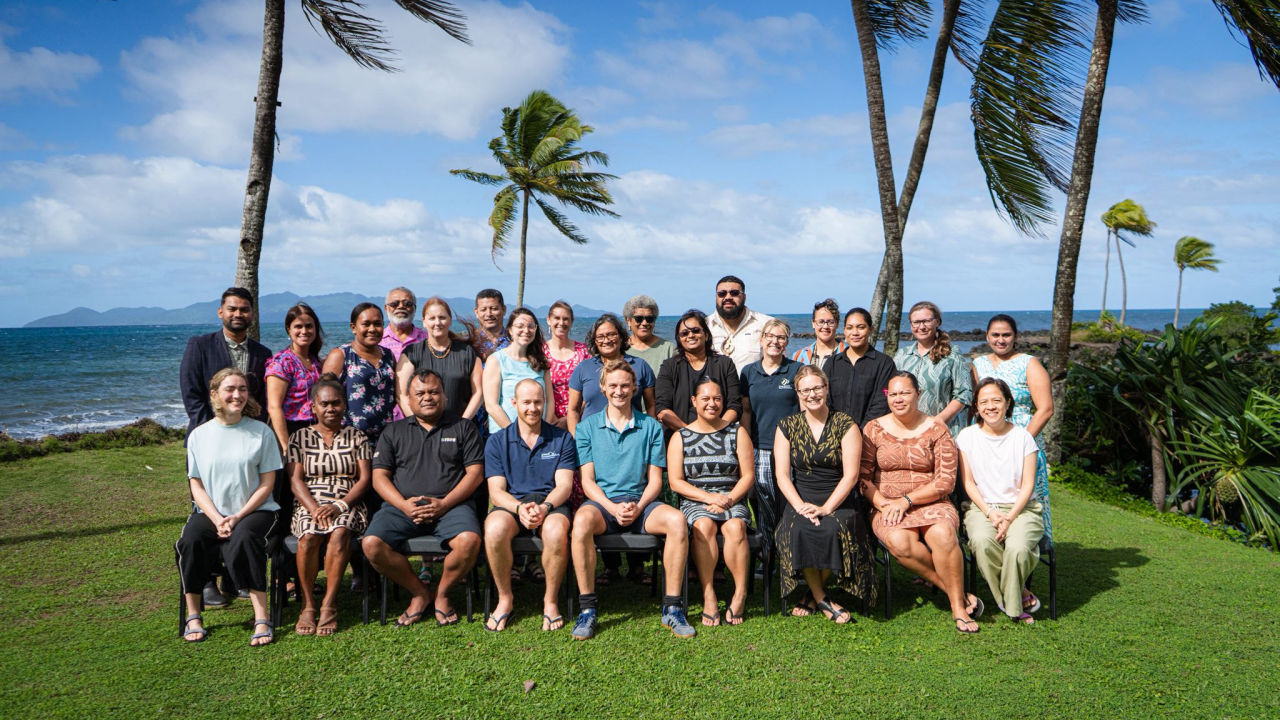
This July, we kicked off an exciting new piece of work for the Foundation: The Resilient Reefs Pasifika (RRP) Accelerator Program.
RRP is a regional partnership working to protect Pacific coral reefs and the communities who depend on them. It connects and strengthens locally led projects that build reef and community resilience across the region.
The Accelerator Program is a key part of this effort. It runs annually, supporting a small cohort of projects to advance their design, readiness, and resource mobilisation goals. The goal is to create and connect a strong, region-wide pipeline of projects that can deliver on the Pacific Coral Reef Action Plan 2021–2030 and to empower the people and organisations leading this critical work.
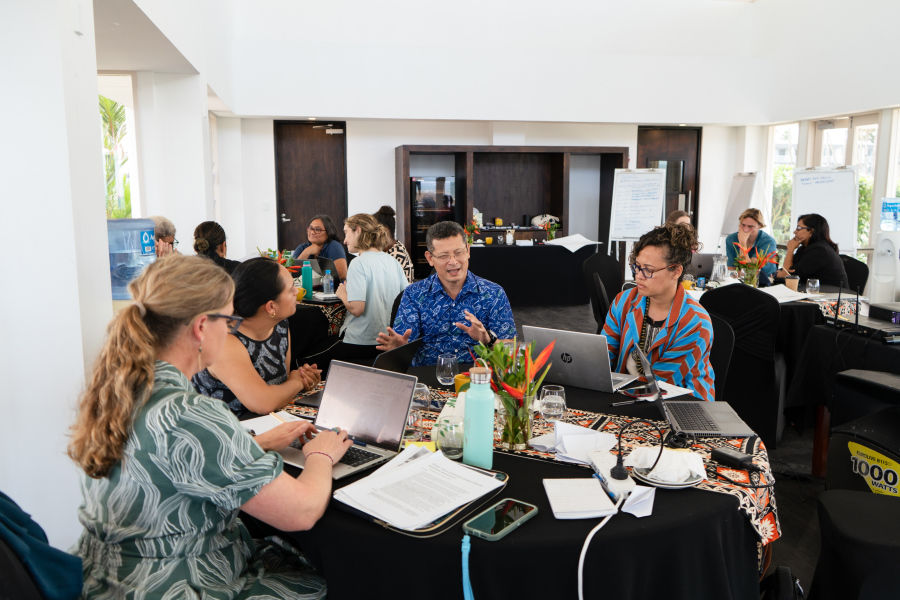
Key discussions at the first Accelerator workshop held in Fiji. Credit: Talanoa Consulting / Pate Creatives.
#What did we learn?
The Accelerator program is designed to help smaller, and early-stage projects build the skills, systems, and support they need to deliver their projects, while attracting and managing funding.
We learned a lot about the cohort’s goals and needs for project design support, which included:
- Blending traditional and scientific knowledge, ensuring projects are community-led and culturally grounded.
- Taking a ridge-to-reef approach, linking land, sea, and community livelihoods for holistic impact.
- Delivering benefits for both people and nature - food security, youth livelihoods, women’s empowerment, and cultural revival were all seen as equally important as biodiversity outcomes.
- Designing scalable models that can grow from pilot projects into long-term programs.
- Innovating boldly, from using drones for rat eradication to coral nurseries and reef tourism that generates local revenue.
Accelerator projects are redefining what reef resilience looks like by blending traditional knowledge with cutting-edge science to create ridge-to-reef solutions that restore ecosystems and strengthen the communities that depend on them.
At the heart of resilience are the local leaders turning knowledge into action."Empowering the people protecting our Pacific reefs.”
We also heard strong priorities for building organisational readiness, including:
- Inclusive governance, ensuring women, youth, and marginalised groups have a voice in decision-making.
- Building operational strength, such as adding coordinators or administrative staff to keep projects moving.
- Developing policies and safeguards to meet donor standards on governance, finance, and gender equality.
- Strengthening critical partnerships, from multi-sector steering committees to local government and conservation coalitions.
- Boosting communications and storytelling to help organisations share their impact with funders and communities.
- Expanding re-granting capacity, enabling mid-sized NGOs to fund and mentor smaller grassroots groups.
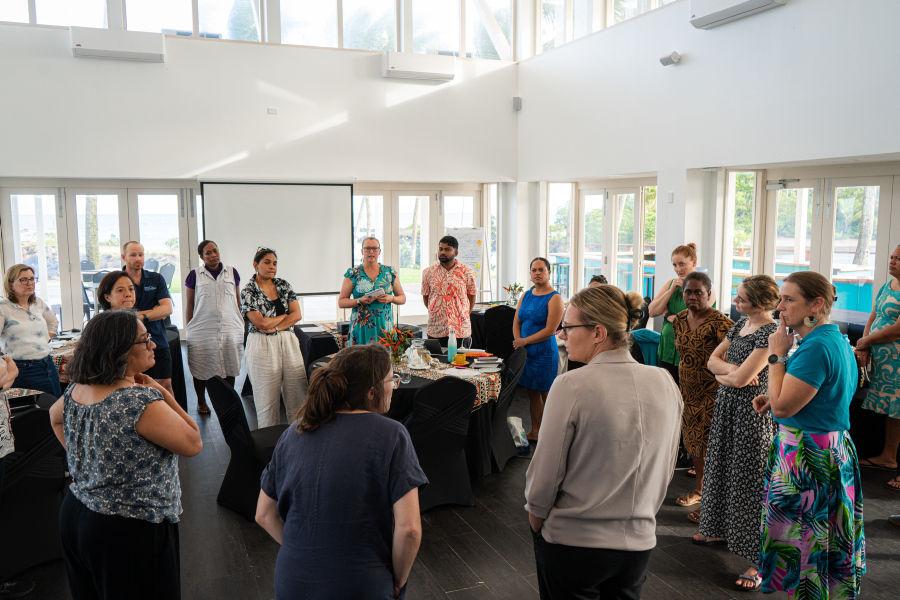
Participants at the first Accelerator workshop held in Fiji. Credit: Talanoa Consulting / Pate Creatives.
#What did we hear about funding?
The cohort shared valuable insights into the barriers and opportunities they face when seeking implementation funding:
- Donors could better align with national and regional priorities, using these frameworks to direct investment where it’s needed most.
- Transparency in donor pipelines would help smaller organisations know where and how to connect.
- Small grants for capacity building are vital stepping-stones toward larger, long-term funding.
- Emerging finance models, such as blue carbon credits, sustainable tourism, and diaspora sponsorships, hold promise, but need clearer pathways for participation.
- Innovative, regionally-led collaboration between donors, philanthropies, and communities could unlock greater regional impact.
- Longer funding commitments are critical to build trust and deliver meaningful outcomes.
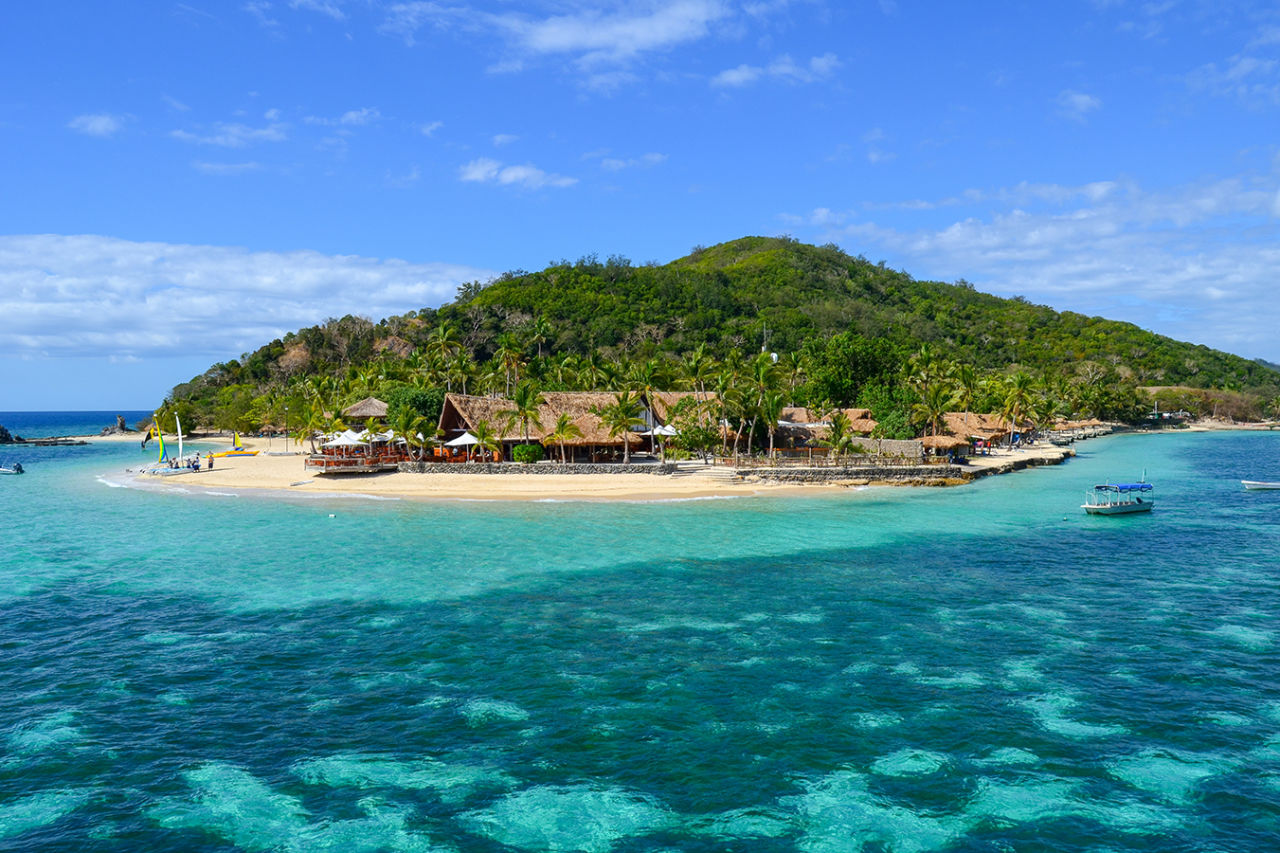
Resilient Reefs Pasifika is led by Pacific communities, backed by science, and supported by global collaboration.
#What’s next?
RRP will continue partnering closely with these leaders to advance project design, organisational readiness, and connections across the Pacific.
Key next steps include:
- Deploying small grants to fill feasibility gaps with AUD 400,000 in grants supporting activities such as upgrading financial and operational plans, engaging communities, or monitoring ecosystem health to guide appropriate interventions.
- Peer learning sessions as needed by the cohort, and covering topics like proposal writing, donor relations, coral reef restoration, traditional ecological knowledge, climate financing, and sub-granting to communities.
- Ongoing technical support to help each project achieve its design, readiness, and mobilisation goals.
- Recruitment for the next Accelerator cohort, with outreach and selection scheduled between November 2025 and January 2026.
- If you’d like to learn more, or nominate a project for a future cohort, please reach out to RRP Director, Ana Perez at aperez@barrierreef.org
Main image: Participants in the inaugural Accelerator workshop in Fiji, July 2025. Credit: Talanoa Consulting / Pate Creatives.
#Related
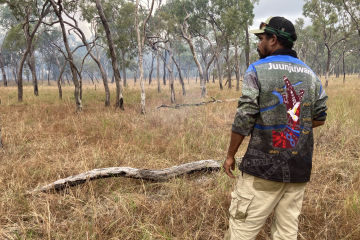
Project News ·
Community at the forefront of Reef water quality protection

Project News ·
A nature-based solution for a healthier Reef

Project News ·

